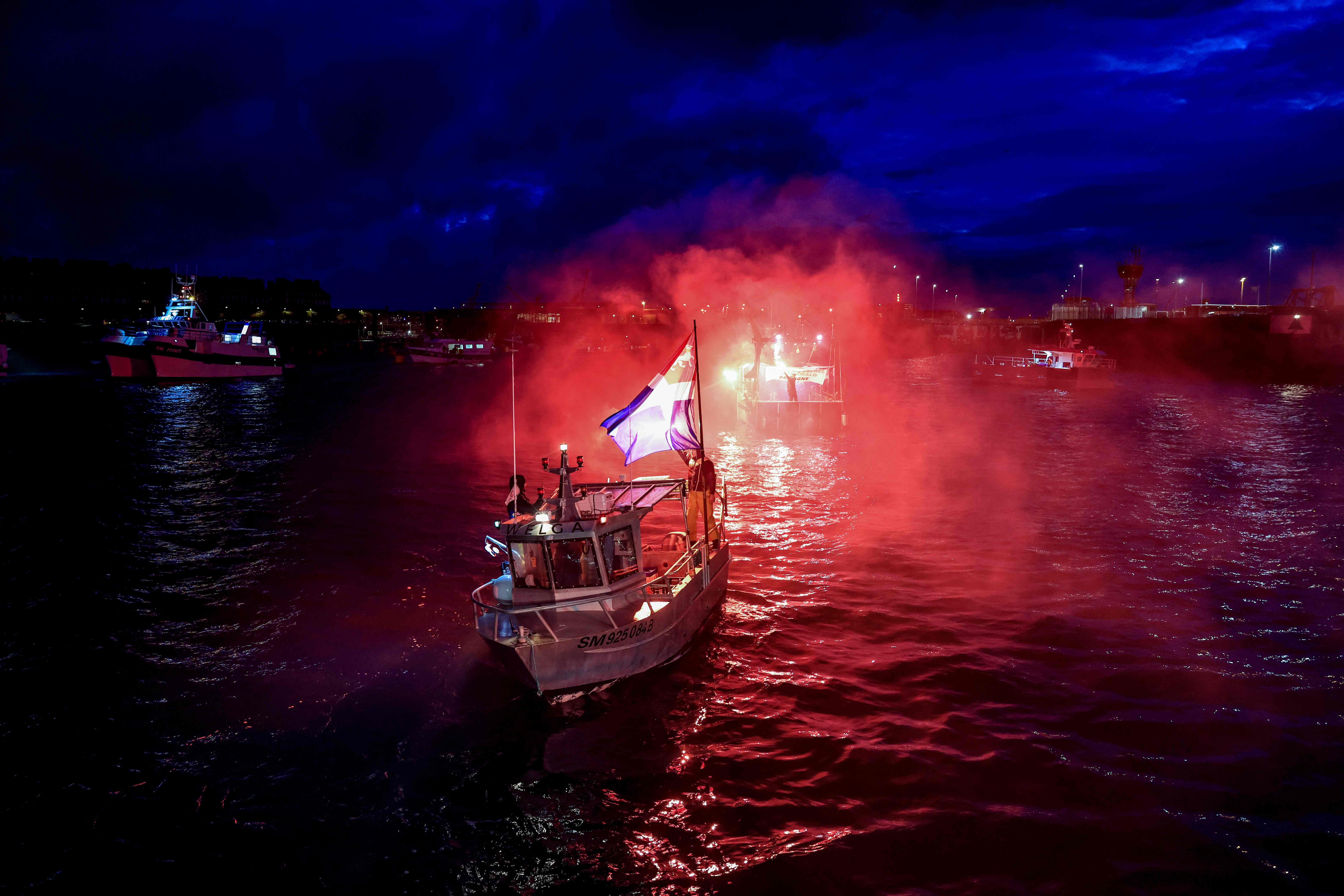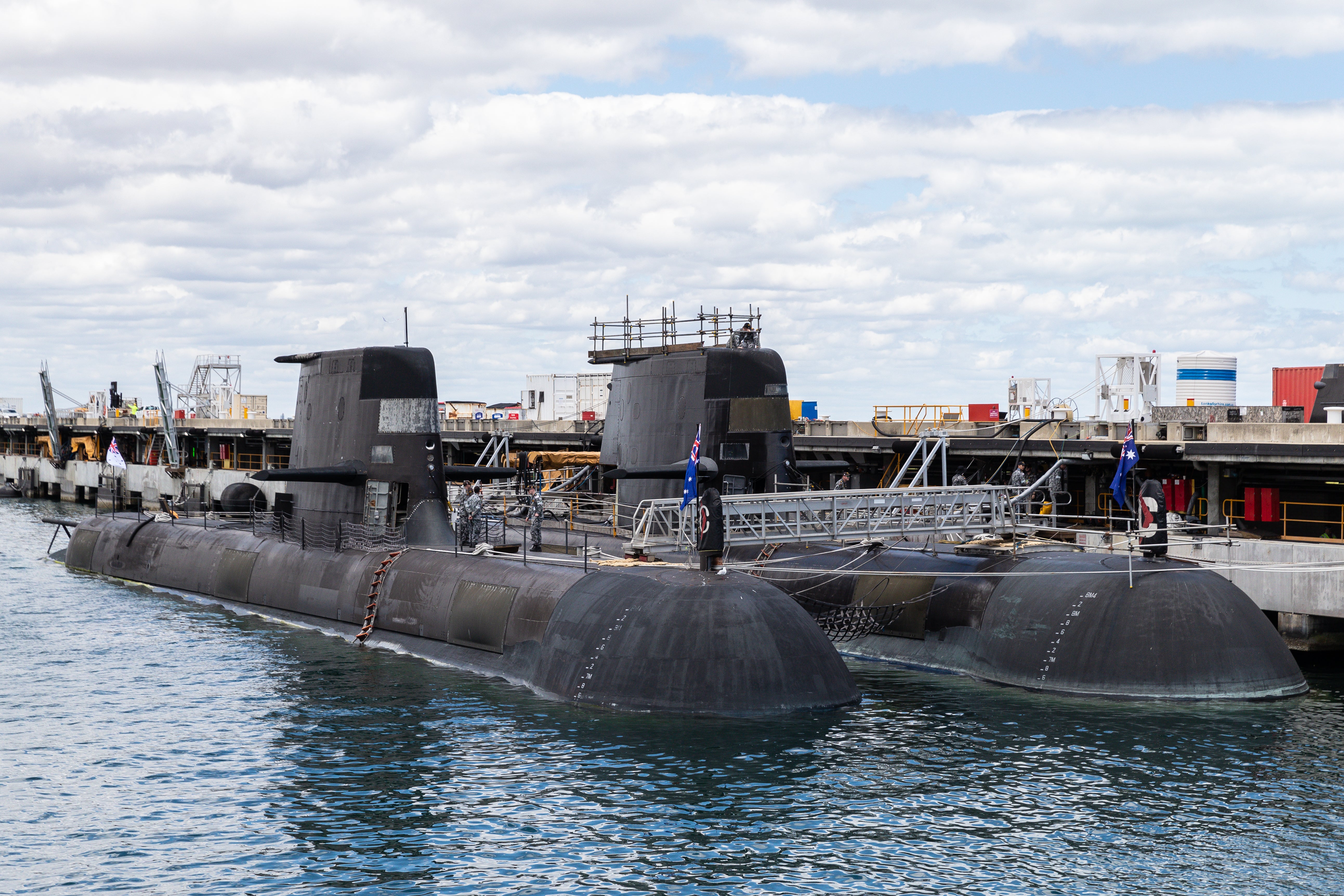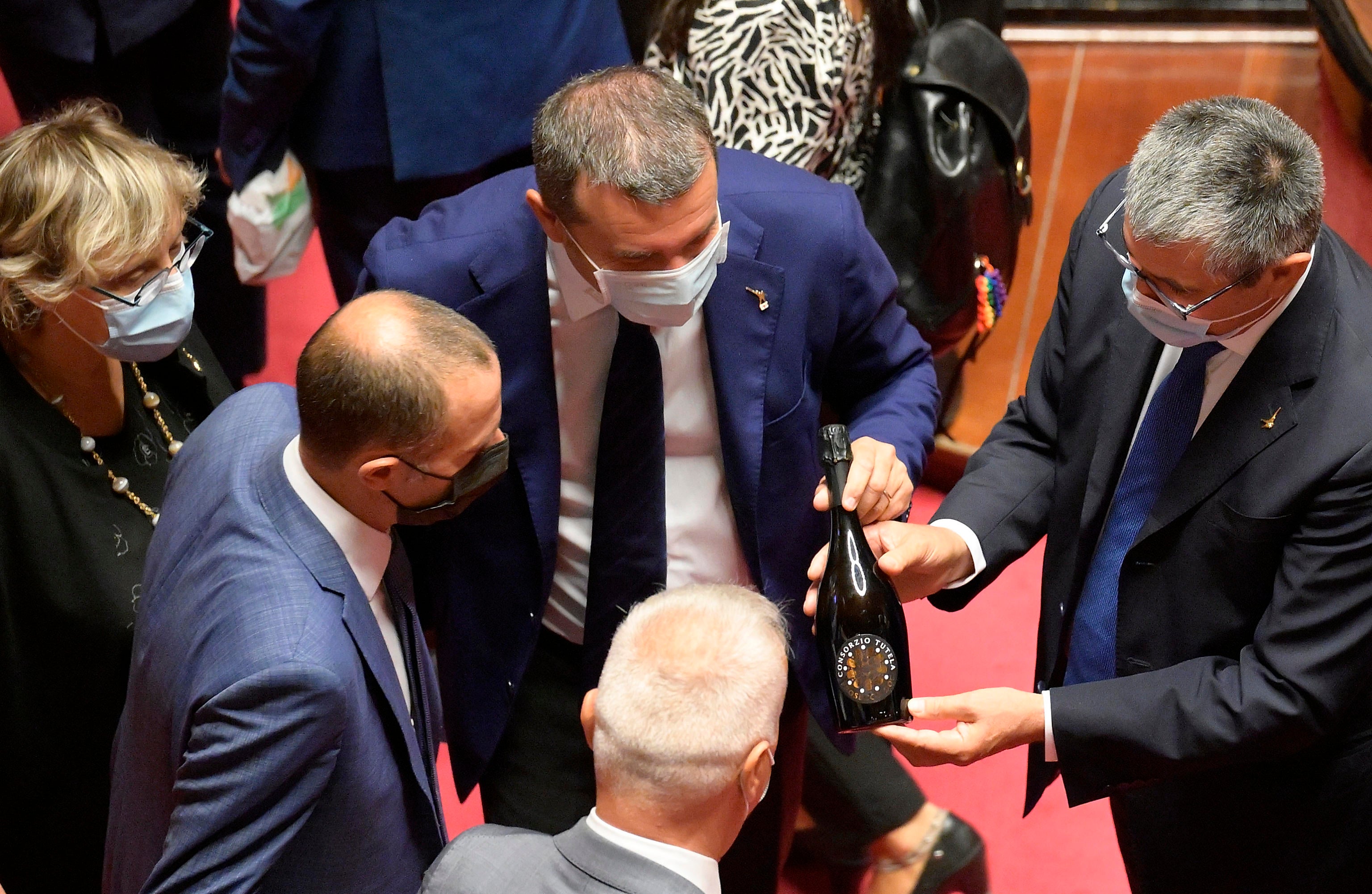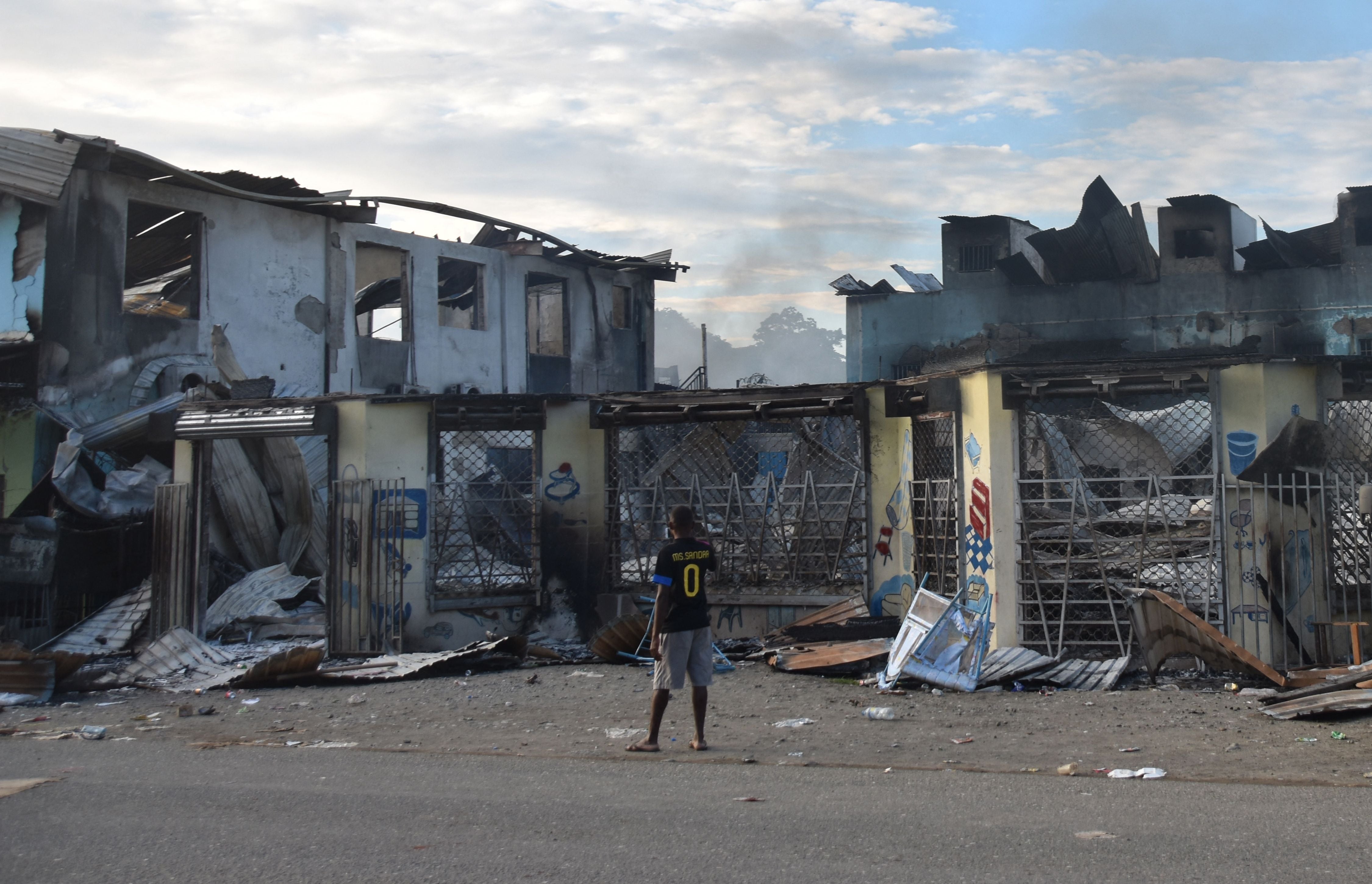Spies, submarines and sparkling wine: Strange diplomatic spats in 2021
China and Lithuania tussled over Taiwan while Croatia and Italy argued about prosecco

Your support helps us to tell the story
From reproductive rights to climate change to Big Tech, The Independent is on the ground when the story is developing. Whether it's investigating the financials of Elon Musk's pro-Trump PAC or producing our latest documentary, 'The A Word', which shines a light on the American women fighting for reproductive rights, we know how important it is to parse out the facts from the messaging.
At such a critical moment in US history, we need reporters on the ground. Your donation allows us to keep sending journalists to speak to both sides of the story.
The Independent is trusted by Americans across the entire political spectrum. And unlike many other quality news outlets, we choose not to lock Americans out of our reporting and analysis with paywalls. We believe quality journalism should be available to everyone, paid for by those who can afford it.
Your support makes all the difference.It has been a year marked by diplomatic rows. But while the troubles between the US and China, Russia and Ukraine, Belarus and half of Europe, and the two Koreas dominated the headlines, other high-profile and frankly unusual disputes have played out.
Here are the top diplomatic spats of 2021 you may have missed:
Britain v France
The history books are always repeating themselves, especially when it comes to these two countries.
The neighbouring rivals may not be the world powers they once were, but both reverted to type throughout 2021.
They clashed on Brexit, security, Covid and fishing. Boris Johnson spoke Franglais to Emmanuel Macron and called for joint police patrols in France on Twitter following the deaths in November of at least 27 migrants who drowned trying to cross the Channel.
Macron called the British leader “not serious” and privately, it was reported, a “clown” as tensions reached a crescendo.
In a post-Brexit world, France is an easy target for a populist British leader, and 2022 is a presidential election year for France, so Boris will be in the crosshairs of Paris, if he remains PM. Expect further rows next year.
France v Australia
If Paris was annoyed by London, it was apoplectic with Canberra.
In September, Australia announced it was signing up to the Aukus security pact with the US and the UK. As part of the deal, Canberra scrapped an estimated £50 billion deal for France to supply 12 submarines.

France recalled its ambassador, Jean-Yves Le Drian, called the whole thing a “stab in the back”, and President Macron refused to take phone calls from his Australian counterpart, Scott Morrison.
Things didn’t end there. Asked if he thought the Australian leader had lied to him about tearing up the submarine contract, Mr Macron replied: “I don’t think, I know.” Ouch.
China v Lithuania
Lithuania has allowed Taiwan to open an office, a sort of de facto embassy, in Vilnius.
China, which regards the democratic self-governed island as its own territory, did not respond favourably.
Beijing has downgraded its diplomatic office in Vilnius, blocked EU imports with components made in Lithuania, and warned that the European state will be consigned to the “garbage bin of history”.
Lithuania, once a part of the USSR, closed its embassy in Beijing while lawmaker Matas Maldeikis said on Twitter that China’s warning was ironic because communism was already in the bin.
For good measure, Mr Maldeikis ended his tweet with the hashtag #StandWithTaiwan.
Croatia v Italy
Sun-kissed, great coastlines, beautiful beaches. You’d really think there’s not much these two countries should be troubled about.
But there is, and strangely enough it is prosecco.
Croatia produces a drink called Prosek, a dessert wine, and wants it to receive special recognition from the EU.
Italy is aghast and has said that such a move threatens the identity of the bubbles so beloved in Britain.
It is the second time the two countries have clashed over the same thing. In 2013, Italy blocked a similar move by Croatia, arguing the two names are too similar. Undeterred, Croatia has gone in for a second round.

Czech Republic v Russia
The Czechs and Russians have often had troubled relations, the low point being the Moscow-led 1968 invasion of Czechoslovakia.
In April this year, there was another flashpoint.
The Czechs expelled 18 Russian diplomats, identified as spies by Prague, for their role in two explosions at ammunition dumps in 2014. Russia responded by expelling 20 Czech diplomats and placed the EU country on its scarily-sounding “unfriendly states list”.
Prague and Moscow have limited the size of the other’s embassy to just seven diplomats and 25 support staff. This represents a huge reduction for Russia’s diplomatic presence in the country - a relic of the Soviet era, when Czechoslovakia was a satellite of Moscow.
Solomon Islands v China/Taiwan
Not many riots are started by foreign policy decisions, but that is exactly what happened in the Solomon Islands this year.
Upset by a 2019 switch of allegiances to China from Taiwan, people took to the streets in the Pacific island nation.
In the ensuing trouble, buildings were burnt down and at least three people died.
In response, China said it would send police officers to the islands to help train its force.
The Solomon Islands’ government blamed “agents of Taiwan” for the trouble. Taipei denied any involvement.

Lebanon v the Gulf
As if Lebanon didn’t already have enough problems, it somehow found room for one more in 2021.
A former TV presenter turned government minister, George Kordahi, criticised Saudi Arabia over its role in the war in Yemen.
The remarks went down badly in Riyadh, predictably, but also with its Gulf allies including Bahrain, Kuwait and the UAE.
All the countries pulled their ambassadors out of Lebanon, adding further instability to the political landscape in Beirut.
Mr Kordahi held on for six weeks, but eventually succumbed to pressure and resigned earlier this month.



Join our commenting forum
Join thought-provoking conversations, follow other Independent readers and see their replies
Comments